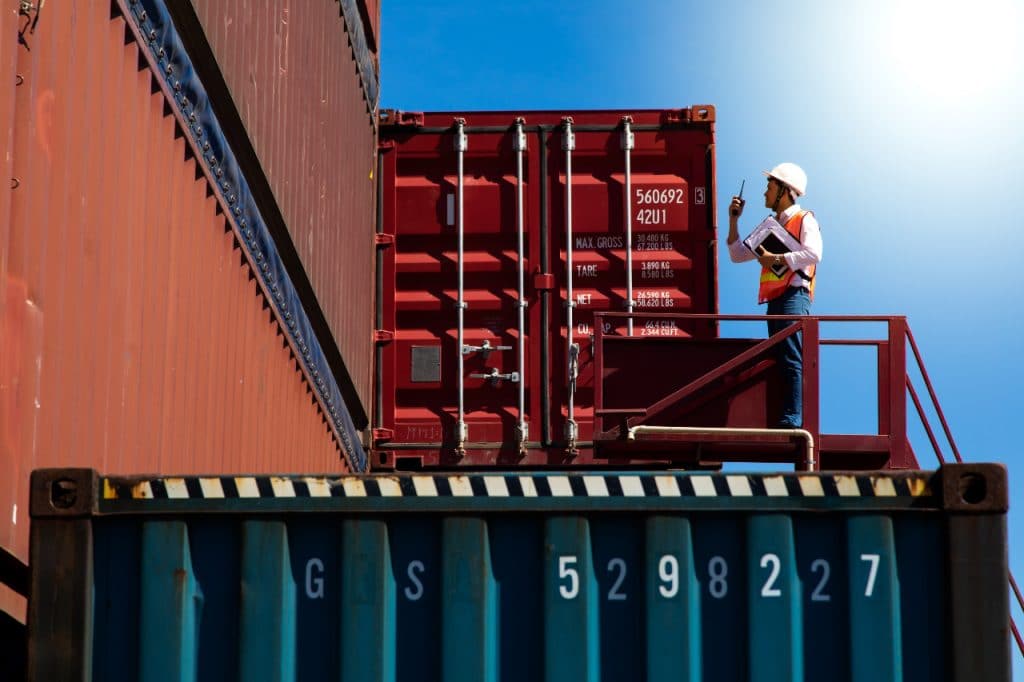The International Chamber of Commerce (ICC) deliberately writes Incoterms®[1] rules in a country-neutral manner for worldwide use. It is uniquely able to address areas of overall concern to buyers and sellers thanks to its many affiliates throughout the world.
However, government regulations, trade practice and geography are country-specific. The result is that in actual use, certain task assignments in these otherwise generally applicable rules work better than others with some countries. This is certainly true for the United States.
As you will see, these situations do not indicate flaws in the rules themselves, just circumstances particular to the U.S.A.
Contract law in the United States
Although the United States was among the first countries to ratify the United Nations Convention for the International Sale of Goods (CISG), American lawyers have typically been reluctant to use it. This situation may reflect the 20th century mindset that because the U.S. party was frequently dominant in a sale or purchase contract, it should dictate the choice of law. It may also come from a former relative lack of interest or experience in foreign markets.
While both reasons may have been frequently true in the immediate postwar world, they are no longer the case. Whatever the reason, the choice of applicable contract law can be a contentious issue for American sellers and buyers.
Choice of U.S. law brings an interesting situation as the United States has no national body of commercial contract law. Contracts are covered by the laws of the fifty individual states.
Fortunately, we have the Uniform Commercial Code (UCC) which acts as a sort of matrix. It is largely incorporated into the contract law in the forty-nine common law states[2]. So, while not word-for-word identical, contract law is reasonably similar throughout most of the country.
The UCC includes its own shipment and delivery terms[3] which have some of the same names and abbreviations as Incoterms® rules but entirely different meanings. These U.S. terms are vague, obsolete, confusing, little understood, and were nearly deleted from the UCC in 2004. However, they survived, and remain embedded in the contract law of all forty-nine common law states. Of course, sellers and buyers are perfectly free to use Incoterms® rules in international and domestic contracts provided they clearly indicate their intention.
Back when Incoterms® rules were in their infancy[4], the U.S. created the Revised American Foreign Trade Definitions of 1941 (RAFTD) which included the UCC shipment and delivery terms. Few people choose to use these obsolete country-specific definitions today, but they do pop up occasionally in poorly understood legacy contracts.
United States foreign trade regulations

U.S. foreign trade regulations are administered by a number of separate government bodies, including but not limited to agencies of the Departments of Commerce, Defense and Treasury.
Imports are regulated by the Department of Homeland Security’s Customs and Border Protection.
Our export controls in particular are extremely complicated, involving rules, prohibition lists and licensing requirements issued by the aforementioned government agencies. These controls are vigorously enforced, and compliance is a major concern for informed U.S. companies and those doing business with them. Under the EX Works rule, export control compliance would be particularly difficult for foreign buyers lacking a U.S. presence.
Export reporting is a subset of export clearance. The U.S. Census Department’s Foreign Trade Regulations state that when a forwarder is appointed by a foreign buyer - as is usual with F-Group Incoterms® rules - it and not the seller is responsible for filing the export report. However, the F-Group rules make sellers responsible for export clearance.
This difference can be finessed, either through the buyer appointing the seller to file the export report in its behalf, or amending the sales contract to task the buyer’s forwarder with export report filing.
Except for a very few points of reference, the U.S. Government does not use or recognize Incoterms® rules in its laws and regulations. It insists on controlling its regulatory vocabulary rather than relying on terminology provided by outside sources.
In addition to export and import controls, the Foreign Corrupt Practices Act (FCPA) strictly regulates the international trade conduct of U.S. companies. There are practices that are common in some parts of the world that are absolutely forbidden by the FCPA.
Dealing with foreign governments through local intermediaries increases the risk for Americans either buying on Ex Works or selling on Delivered Duty Paid Incoterms® rules. Penalties for FCPA violations far exceed any normal “cost of doing business,” and extensive record keeping is required to justify any suspect expenses.
The U.S. Carriage of Goods by Sea Act (COGSA)[5] governs carrier liability for goods shipped to and from the United States by sea. It reflects the Hague rules of 1924, and assigns a maximum carrier liability of US$ 500 per “package” with no relation to actual cargo value. This limitation is particularly harsh for containerized shipments as each container is considered to be a package.
While many countries adopted the Visby amendments of 1977 and 1982 that removed the “package” concept, the U.S. did not.[6] This makes adequate marine cargo insurance coverage extremely important for U.S. waterborne export and import shipments, particularly those involving containers.
Carrier liability and insurance

Incoterms® 2020 rules provide a solution to the issue of carrier liability. The CIP rule is frequently used for containerized shipments when the seller provides insurance, and the default level for this rule has been changed from “minimum” to “maximum” cover[7].
The text specifies the English LMA/IUA Institute Cargo Clauses (A) or any similar clauses which would include similar American clauses. However, terminology differs.
- The incorrectly named American “All Risk”[8] substantially matches the LMA/IUA Clauses (A).
- The American “With Average” substantially matches the LMA/IUA Clauses (B).
- The American “Free of Particular Average” substantially matches the LMA/IUA Clauses (C).
Substantially does not mean exactly. Interested readers should refer to the American Institute of Marine Underwriters website for the complete American clauses and a comparison with the LMA/IUA clauses.
Lack of VAT
Unlike many other countries, the U.S. has no national value added tax (VAT). Any sales taxes are levied by states and/or municipalities, and federal law prohibits sales tax on exports. The absence of a VAT, plus a surprisingly generous de-minimis allowance, makes Delivered Duty Paid transactions practical for small shipments to the U.S. from many items.
The use of Incoterms® in the U.S. in both international and domestic transactions has grown significantly over the past twenty years. This trend is likely to continue, given the new and more user friendly 2020 revision.
About the author
Frank Reynolds represented the United States for the Incoterms® 2000, 2010 and 2020 revisions. His Incoterms Rules for Americans®[9] provides advice on optimal Incoterm use for U.S. buyers and sellers and is available at Incoterms-for-Americans.com.
Further Learning
Get a comprehensive understanding of the Incoterms® 2020 rules and a respected ICC credential by enrolling on ICC Academy’s Incoterms® 2020 Certificate. You can also purchase the Incoterms® 2020 rules in eBook format here.
References:
[1] Incoterms® is a trademark of the International Chamber of Commerce, registered in several countries.
[2] Louisiana law is civil code and follows the Uniform Commercial Code to a far lesser extent than the other U.S. states. It excludes the UCC shipment and delivery terms.
[3]Found in parts 2-319 through 2-324 of the Uniform Commercial Code – but their location in individual state laws differs.
[4] Incoterms® were introduced in 1936.
[5] Found in 46-USC-30701. Note: Other countries have similarly titled COGSA laws with entirely different content.
[6] There was considerable interest in revising the U.S. COGSA in the late 1990s. This was abandoned because of a promising new set of U.N. rules, the Rotterdam Rules, which would apply on a worldwide basis. Sadly, this seems to have stalled out lacking the required number of country ratifications.
[7] However, the default coverage level for the CIF rule remains “minimum cover” LMA/IUA Clauses( C).
[8] “All Risk” does not cover all risks and should be enhanced by War and Strike, Riot and Civil Commotion (SRCC) coverages.
[9] Incoterms Rules for Americans is a registered trademark of International Projects, Inc.

